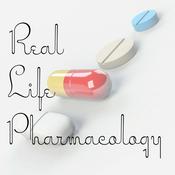In this episode, we explore several important non-statin cholesterol-lowering therapies, focusing on their mechanisms, clinical uses, and practical considerations for patient care.
We start with bile acid sequestrants, also known as resins, including cholestyramine, colestipol, and colesevelam. These medications lower LDL cholesterol by binding bile acids in the gut, prompting the liver to use more cholesterol to make new bile acids. They are effective for LDL reduction but may cause gastrointestinal side effects and have drug interaction considerations.
Next, we cover niacin (vitamin B3), which can lower LDL and triglycerides while raising HDL cholesterol. While niacin was historically widely used, its role has declined due to flushing, gastrointestinal symptoms, and potential liver toxicity.
Omega-3 fatty acids, including icosapent ethyl (EPA), primarily lower triglycerides and are used in patients with severe hypertriglyceridemia to reduce the risk of pancreatitis. Icosapent ethyl is a purified EPA formulation with evidence of cardiovascular benefit in select high-risk patients.
Finally, we discuss bempedoic acid, a newer oral agent that inhibits ATP-citrate lyase in the liver. Because it is activated only in the liver, bempedoic acid may be useful for patients with statin-associated muscle symptoms. Common adverse effects include elevated uric acid and mild increases in liver enzymes.
This episode highlights how these non-statin agents can be strategically used alone or in combination with other therapies to help patients reach their lipid goals and reduce cardiovascular risk.
Be sure to check out our free Top 200 study guide – a 31 page PDF that is yours for FREE!
Support The Podcast and Check Out These Amazing Resources!
NAPLEX Study Materials
BCPS Study Materials
BCACP Study Materials
BCGP Study Materials
BCMTMS Study Materials
Meded101 Guide to Nursing Pharmacology (Amazon Highly Rated)
Guide to Drug Food Interactions (Amazon Best Seller)
Pharmacy Technician Study Guide by Meded101



